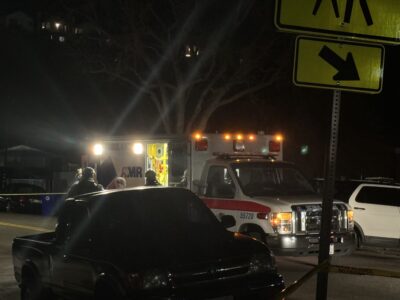By Melanie Sun
Contributing Writer
The Pentagon announced on Monday night that it is sending more defensive weapons to Ukraine amid the Eastern European country’s ongoing war with Russia.
In a statement, the Defense Department said, “At President Trump’s direction, the Department of Defense is sending additional defensive weapons to Ukraine to ensure the Ukrainians can defend themselves while we work to secure a lasting peace and ensure the killing stops.
“Our framework for POTUS to evaluate military shipments across the globe remains in effect and is integral to our America First defense priorities.”
The statement comes hours after President Donald Trump, when asked by reporters at the start of a dinner with Israeli Prime Minister Benjamin Netanyahu, said the United States is “going to send some more weapons” to Ukraine.
“We have to,” he said. “They have to be able to defend themselves. They’re getting hit very hard now.
“They’re getting hit very hard … So many people are dying in that mess.”
The president added that the weapons the United States will be supplying are “defensive weapons, primarily.”
On July 4, Ukraine suffered the largest aerial assault from Russia since Moscow’s invasion of the country in February 2022, according to the Ukrainian Air Force. They estimate that 539 Iranian Shahed drones and 11 missiles targeted the Ukrainian capital of Kyiv.
Russia successfully hit eight locations with nine missiles and 63 drones. The rest were intercepted.
Following the attack, Ukrainian President Volodymyr Zelenskyy said after a phone call with Trump that Ukraine’s air defenses, thanks to the support of partner nations, had been key in ensuring that the attack did not result in further devastation.
The same day, Trump told reporters that Ukraine would need Patriot missiles for self-defense. He did not mention them again specifically in his comments on Monday.
Ukraine has been asking Washington to sell it more Patriot missiles and systems, which it sees as key to defending its cities from intensifying Russian air strikes.
On July 2, the United States halted shipments of some arms to Ukraine as part of a Pentagon “capability review” to ensure that U.S. military aid aligns with the nation’s defense priorities.
The decision prompted warnings from Kyiv that the move would weaken its ability to defend against Russia’s airstrikes and battlefield advances. Germany said it is in talks on buying Patriot air defense systems for Ukraine to bridge the gap.
Zelenskyy also said on July 4 that he had agreed with the United States to work on increasing Kyiv’s capability to “defend the sky” from Russian attacks. He also said he discussed joint defense production, purchases and investments during his call with Trump.
A day earlier, Trump had talked on the phone with Russian President Vladimir Putin, after which the U.S. leader said, “I didn’t make any progress with him at all.”
Since coming into his second term, Trump has expressed hopes to be able to broker a peace deal between the Ukrainian and Russian governments, but has said in recent days that he no longer believes Putin is serious about wanting peace.
In comments to Hungarian outlet Magyar Nemzet, published on Monday, Russian Foreign Minister Sergei Lavrov repeated the Kremlin’s position on any peace deal.
He said Russia’s demands remain the same, and must include demilitarization, regime change in Ukraine — which Russia refers to as “denazification” — and removing the threats to Russia of NATO expansion and Ukraine’s alleged discrimination against Russian-speakers.
Lavrov said these are what Russia sees as the root causes of the war.
He also demanded recognition of Russia’s claims for annexing Ukrainian territory as well as relief from sanctions and freezing of Russian assets.
The Institute for the Study of War, a non-partisan D.C.-based think tank, said it believes “the Kremlin remains uninterested in good-faith peace negotiations and any settlement to the war that does not acquiesce to its demands.”
Meanwhile, on July 3, during a meeting in Brussels with Chinese Foreign Minister Wang Yi, European Union foreign policy chief Kaja Kallas “highlighted the serious threat Chinese companies’ support for Russia’s illegal war poses to European security,” according to a statement from her office.
Beijing should “immediately cease all material support that sustains Russia’s military industrial complex” and support “a full and unconditional ceasefire and a just and lasting peace in Ukraine grounded in full respect for the United Nations Charter,” she said.
Guy Birchall contributed to this report.







